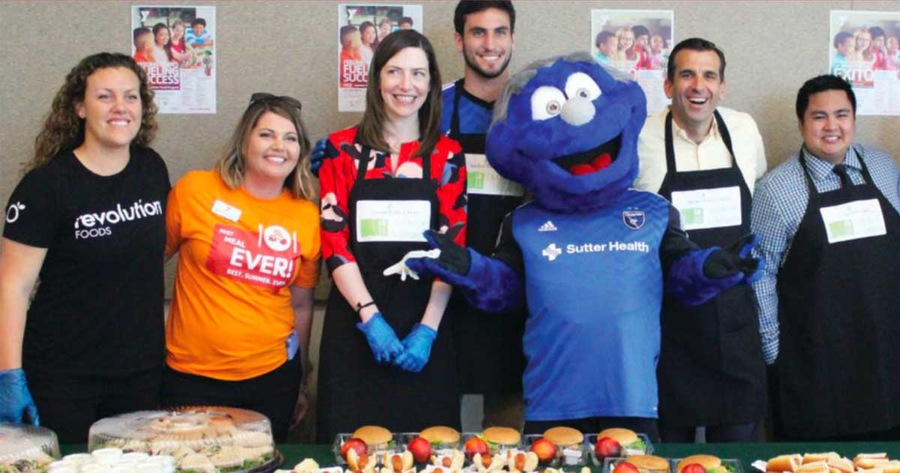Without the support school meals provide, many families struggle to afford food while stretching tight budgets to cover childcare and summer programming. These summer nutrition and opportunity gaps can have negative effects on academics, health, and development.
Fortunately, federally funded summer meal programs can help reduce food insecurity while helping to provide a safe place for children to learn and play. The programs, funded by the United States Department of Agriculture and including the Summer Food Service Program and Seamless Summer Option provided through the National School Lunch Program, are key resources that provide nutritious meals and snacks during summer months. Local governments, school districts and nonprofits can sponsor summer food sites—which may be located at schools, libraries, parks, recreation centers, affordable housing communities, migrant centers, YMCAs, Boys & Girls Clubs or other expanded learning programs, houses of worship, and other places children congregate when school is out—and receive reimbursement for every meal served.
Communities that maximize participation in these important programs see positive economic ripple effects. Summer programs provide crucial childcare and support for working parents, helping them keep their jobs. Drawing down federal reimbursement means summer programs are able to reallocate funding that was being spent on food and invest it in program improvements and staff.
Summer meals provide important fuel for bodies and minds that go along with expanded learning programs' efforts to combat summer learning loss and ensure children return to school healthy and ready to learn. Meals are an added value for expanded learning programs to offer to families, in addition to sparking new partnerships with other agencies and adding visibility to the importance of out-of-school time programs in youth development.
Despite the obvious synergy between expanded learning and summer meals, summer meal programs go underutilized across the nation, reaching only 1 in 7 children in need. Part of the solution includes developing more creative solutions and communitywide collaborations to address the learning and nutrition needs of children in economically disadvantaged neighborhoods when school is out.
One solution is found in the growing number of partnerships with local public libraries. Since 2013, more than 190 California libraries have become summer meal sites in partnership with local school districts and city agencies, community-based organizations, and expanded learning programs. Dispelling the myth that they are only about books, libraries are popular summer meal sites because they are safe, trusted spaces in the heart of the community and offer a wide range of programs for the entire family. As the great equalizers, libraries provide free access to all community members, connecting them to resources and information while serving as a hub for collaboration with other agencies. The growth of library meal sites has seen year-over-year increases in the number of meals served.
Serving summer meals is about more than nutrition, allowing countless unique partnership and collaboration opportunities. As the summer meal provider for the San Jose Public Library, the YMCA of Silicon Valley works closely with the library, city leaders, local sports teams and other agencies to coordinate successful summer meal kick-off events. These initiatives bring agencies closer together to serve families' needs in a more coordinated way. Redlands Unified School District provided 300 lunches and snacks every day to its local YMCA and Boys & Girls Club last summer. The school district also provided 300 meals for their field trips, to ensure participants didn't miss out on a healthy meal.
Now is the time to look ahead and begin making plans for incorporating summer meals into eligible communities. The first step: Connect with the state child nutrition agency, which administers and provides training and technical assistance on operating the programs, and with community anti-hunger organizations, which often work to increase participation in summer meals by providing additional resources and connecting partners working on food access.
The Food Research & Action Center (FRAC) offers resources to learn more about the Summer and Afterschool Nutrition Programs, determine eligibility, and identify successful implementation strategies.
Visit Lunch At The Library to learn more about California Library Association's Lunch at the Library project and how to partner with local libraries in your community.
Written by Clarissa Hayes, Senior Child Nutrition Policy Analyst, Food Research and Action Center, and Patrice Chamberlain, MPH, Program Consultant, Lunch at the Library, California Library Association.
This article originally appeared in AfterSchool Today.

